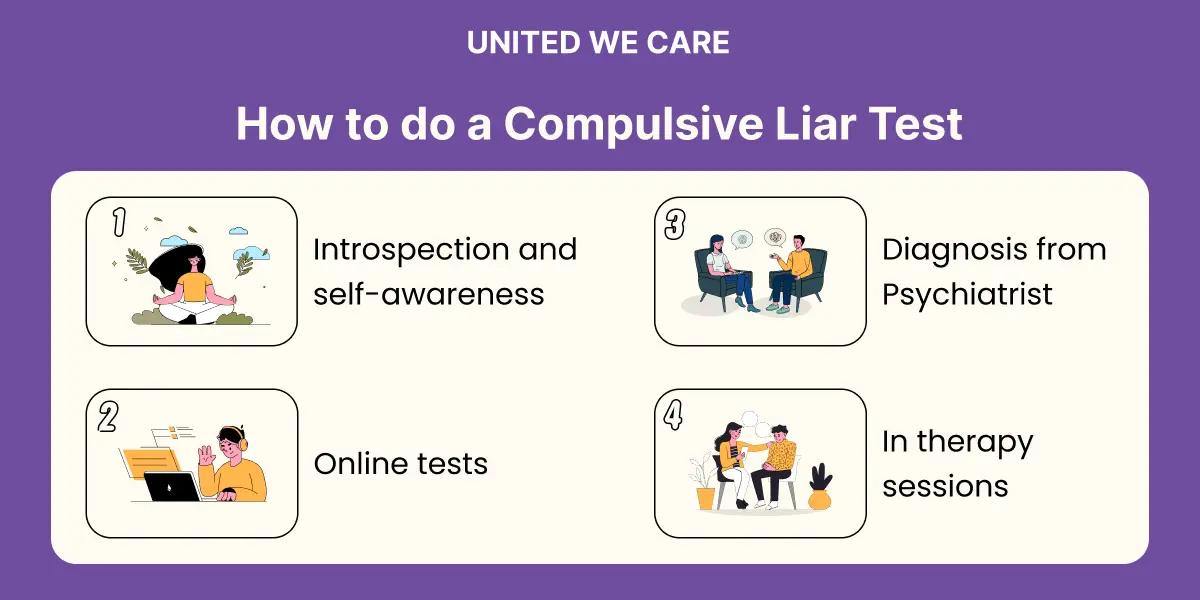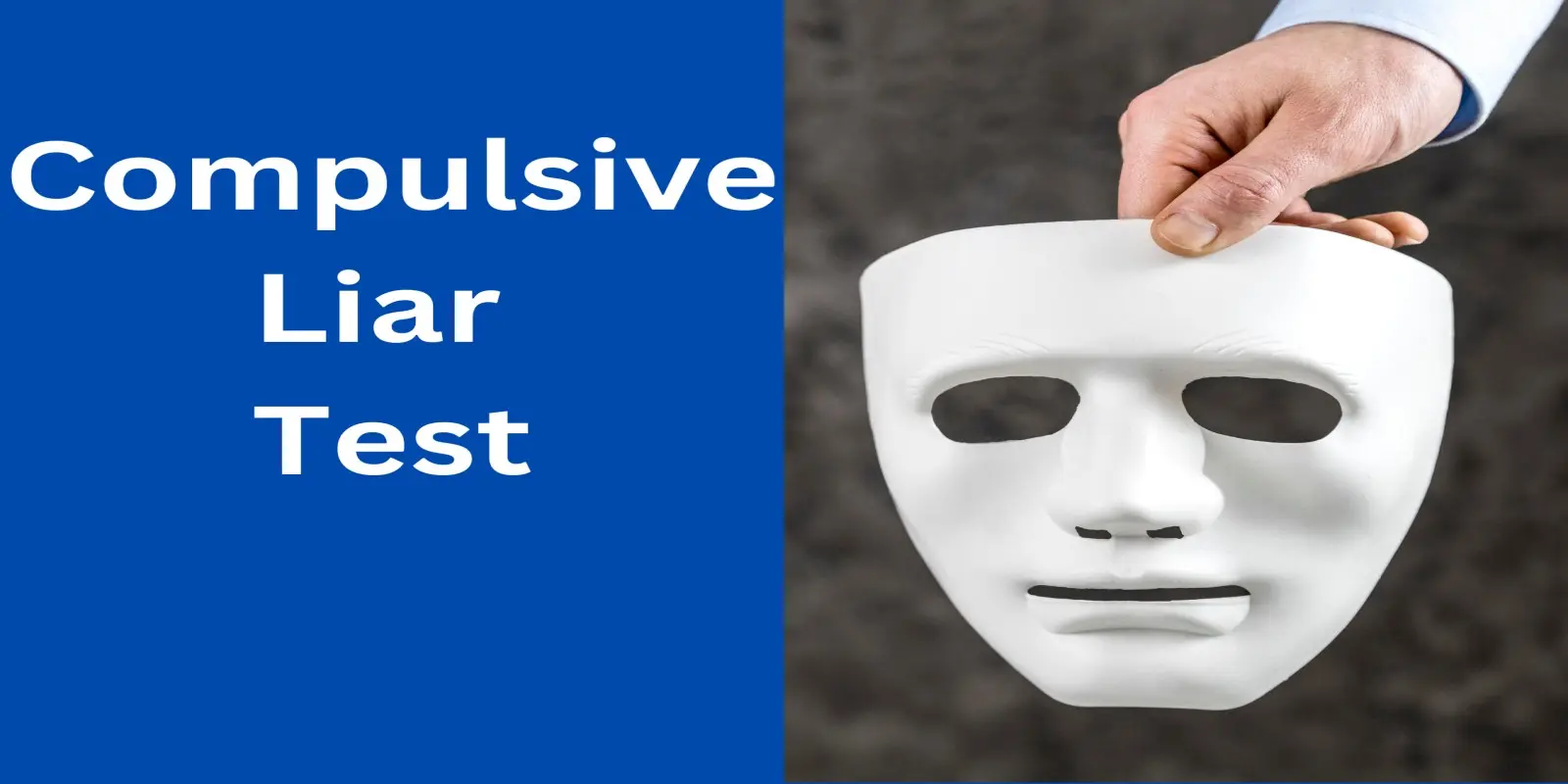Introduction
Certainly, compulsive lying is more than just regular lying. It is a trait where an individual feels compelled to lie. Some people who are compulsive liars like lying because of the high they experience while lying.
It can be difficult to measure compulsiveness in lying. You need to be mindful of several parameters.
Below mentioned are details on what a compulsive liar test entails.
What is a Compulsive Liar Test?
Firstly, to understand a compulsive liar test, it is essential to comprehend compulsive lying. Compulsive lying is different from other forms of lying. As compared to other forms of lying, compulsivity refers to the irresistible urge to lie even when not required. Similarly, it means that a compulsive liar will indulge in anything and everything and might create trust issues with others.
Secondly, compulsive lying is not a medical condition. It differs slightly from pathological lying as the compulsive liar is very much in control of and aware of when they lie and why. Due to a lack of scientific evidence in this area, there are difficulties in assessing a compulsive liar.
Essentially, a compulsive liar test is not a diagnostic tool. Rather, it can help gain insight into whether someone is lying or not. More often than not, compulsive lying is secondary or correlated with certain personality disorders. A compulsive liar test, at best, can help you identify the presence of constant lying.
Why is the Compulsive Liar Test Important?
As we know, a compulsive liar will not be aware of the extent to which they lie. Furthermore, they might indulge in lying more when nervous or questioned. A test will offer an objective way to find out whether they are lying or not. Compulsive lying tests can also help identify if any other mental health issues are at play.
Particularly, compulsive lying destroys the trust and confidence a person can have. Such irresistible urges could affect the social reputation of the involved and might make them appear flaky or unreliable. A test can help reveal to the person how their lying is affecting them negatively in their life.
In some cases, a person might be aware of their tendencies to lie. However, they might struggle to accept this and work on it. A test process can help you to identify why you feel the need to lie. It can essentially help you get to the root cause of lying.
Perhaps the most important aspect of testing for lying is that it helps you connect to the right professionals. Ideally, tests that require confirming lying or other related tendencies should be performed by professionals. This can help you gain insight into other issues or interrelated troubles in your life. Most importantly, it can help you take a step towards your well-being.
How to do a Compulsive Liar Test?
A compulsive liar test involves several difficulties. Firstly, the person involved will deny or try to hide that they are lying. Even if the person is willing to accept that they lie, they might not know why they have the urge to lie. Often, the lying is baseless and not conscious, which makes it difficult to identify where the habit originated. Let’s discuss some of the ways in which assessment for compulsive lying is possible:

Introspection and self-awareness
One of the first ways you can assess that your lying is getting out of hand is to introspect. Journaling about your conversations, discussing and introspecting on past experiences can help you accept the difficulties you have been experiencing in being honest.
Alternatively, you can reach out to those around you to fill in gaps and find out more about yourself. By slowly observing your lying habits, you can get to the root cause. Also, cultivating these habits will help you understand how lying is affecting other areas of your life.
Online tests
Practically, there are several tests available online that claim to help you understand if you are a compulsive test. While some of these tests are self-conducted, some are automated, and some still require insights from a loved one.
While these tests may or may not accurately help you identify if you are a compulsive liar, they are not efficient in managing and getting to the root cause of your compulsiveness. Furthermore, some of these tests are too generic and may result in false positives.
Diagnosis from Psychiatrist
Compared to other forms of testing, consulting a medical professional is more reliable. However, since compulsive lying is not a medical illness per se, getting to a conclusion might be difficult. A psychiatrist or a mental health doctor can help you identify how lying might be affecting your well-being.
Also, if you are someone who is aware of your tendencies to lie, a doctor could help you understand why this habit has developed in the first place. Potentially, you can also rule out the presence of other personality issues that might be leading to the habitual urges to lie.
In therapy sessions
In brief, the most effective way to get assessed for compulsive lying is through therapy. If you or someone you know might be affected by compulsive lying, consider taking them through a therapy session. A psychotherapy session is conducted by trained and licensed psychiatrists, psychiatric social workers, or psychologists.
Not only does a therapy session help you in assessing if you are a compulsive liar. It can also help you identify why this habit developed in the first place. Moreover, a therapist can help you manage the detrimental effects that lying has on your social and occupational life.
Conclusion
In conclusion, compulsive lying tests require several parameters and can be conducted in several ways. To learn more about compulsive lying tests and their relation to pathological lying, read this article.
To learn more about your well-being and to get expert help from highly qualified professionals, reach out to United We Care App. Along with professionals, you can find a variety of blogs related to compulsive lying and related topics.
References
[1] D. Djuric-Jocic, N. Pavlicic, and V. Gazivoda, “Pathological lying and tasks of psychological assessment,” Vojnosanitetski pregled, vol. 75, no. 2, pp. 219–223, 2018, doi: https://doi.org/10.2298/vsp151213243d.
[2] J. E. Grant, H. A. Paglia, and S. R. Chamberlain, “The Phenomenology of Lying in Young Adults and Relationships with Personality and Cognition,” Psychiatric Quarterly, vol. 90, no. 2, pp. 361–369, Jan. 2019, doi: https://doi.org/10.1007/s11126-018-9623-2.









